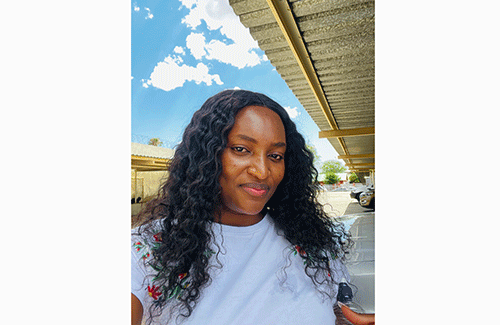In times of critical need – now more than ever – social workers and their ability to find creative ways to positively impact their communities are needed.
This is particularly important as Namibia seeks to promote change and development, social cohesion and empowerment.
To this end, the importance of the role that Selma Shilongo, a social worker in the Ministry of Gender Equality, Poverty Eradication and Social Welfare, plays cannot be overemphasised.
Shilongo was assigned to the small town of Oshikuku, Omusati region, when she joined the ministry in 2015 – fresh from the University of Namibia.
The alarming suicide rate in the northern Namibian town was among the factors that motivated her to settle for this town as her duty station.
“I joined the public services because I saw a need for our services in the community. I personally decided to start working in a small town called Oshikuku in the Omusati region. Oshikuku, specifically, had a high number of suicide cases, so there was really a need,” she maintained.
As a designated social worker, she says, every day comes with its own set of responsibilities, as no particular case is exactly the same as the previous one.
“We offer statutory services to children. Meaning, we represent them in court reports for custody, guardianship, kinship care and foster care, among others,” Shilongo stated, adding that the extent to which they can go in the execution of their duties is limited only by the relevant legislation.
“Basically, we attend to all issues relating to children in terms of the Childcare and Protection Act. 3 of 2015. We also provide counselling services,” she stressed.
Many social workers will attest to the fact that this line of work presents a challenging yet rewarding career.
According to Shilongo, working for the State in this position is no exception, particularly in light of the fact that the government is short-staffed in that sector.
Growth
Currently based in Windhoek, Shilongo has it that working in the capital comes with a lot of growth and challenges, and the workload, according to her, tops the list of these challenges.
“We are only eight operational social workers for the whole Khomas region. Juxtaposed with the population of this region, it goes without saying that we are overworked,” she maintained.
Be that as it may, Shilongo derives constant satisfaction from the feeling that she is making a difference in people’s lives.
“It is very satisfying – being the voice of the voiceless,” she said.
Queried as to how her expertise is beneficial to the public service and particularly her ministry, Shilongo did not mince her words.
Said Shilongo: “As a social worker for the ministry, I am of the opinion that I am contributing towards the strategic objectives of the public service by ensuring gender equality, equity and the empowerment of the marginalised communities as well as people living with disabilities”.
She takes pride in her work-related accomplishments. These, she says, include having to deal with children in need of protective services and managing to get them to a safe place – and eventually getting them permanent placements, which could be family structures.
“I am personally fond of adoption, which is a process that brings joy and stability in the life of a child, who had no parental care and no sense of belonging,” Shilongo stressed.
Perks aside, what Shilongo likes most about working for the government is the fact that government services are accessible to everyone and anyone in need, at no cost, considering the high unemployment rate in the country.
She rubbished as false the perception that civil servants are lazy and largely inefficient.
“I strongly do not agree with the statement. We come from different backgrounds – with different personalities, and that is what makes us unique individuals, despite where you find yourself,” she said.
Future plans
Only the future, she says, holds the answer to the question as to how long she will remain in the civil service, but she remains open to any possibility that guarantees growth.
“I am grateful for the experience I have gained with the two ministries. They have shaped me both professionally as well as personally,” she revealed
“I am currently enrolled with the University of East London to further my studies and hopefully complete with flying colours. Obviously, this comes with personal growth. I also hope to one day work overseas so as to get a different perspective from other countries,” she concluded.



